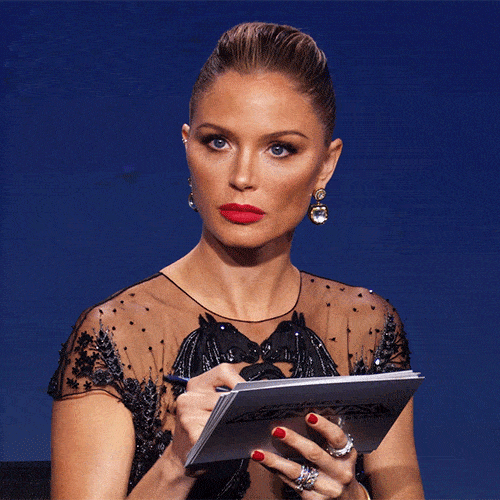Warming up the sciences
- Kerryn Warren

- Jan 30, 2020
- 4 min read
Updated: Jan 31, 2020
“At the end of the day people won't remember what you said or did, they will remember how you made them feel.”
― Maya Angelou
I have recently been privileged enough to participate in a workshop hosted by the Perot Museum on Science Communication in Paleoanthropology. One thing that struck me was the dual concept of warmth and competence. While scientists are viewed as competent, according to the Story Collider hosts on Day One of the workshop, they are rarely seen as warm and approachable.
This is unfortunate for many reasons. Coldness breeds with it a stereotype which many young children might not feel aligns with them, pushing them away from the sciences. It also encourages, within STEM disciplines, the myth that with warmth you are somehow losing something academic or formal. The idea that the more human you appear the less “objective” your science is, in part, unhelpful in efforts to transform and diversify the discipline. It is also unhelpful in efforts to truly recognize that coldness and objectivity are not necessarily married.
Another truly unfortunate effect is that, until we are mindful of how we treat and encourage others, we are isolating our allies. At this workshop one journalist informed us that many others do not want to work on science. The subject matter, to them, is often scary. And, on occasion, scientists can be dismissive and condescending. Journalists are important pillars to our success: to encourage children, to stimulate public interest and to encourage funding from diverse sources.
If I think back on other experiences I have had, in these cases with teachers, these same themes are repeated. Teachers are scared to teach new or potentially socially strained subject matters (such as evolution), but are similarly afraid to approach scientists for help. At one workshop I hosted a teacher approached me afterwards and told me that I was the first scientist who had told her that she knew more about something (in this case: education and her classroom) than I did. The scientists reputation for not only being cold, but overwhelmingly egotistical, seemed to be upheld by her experience.
And yet many scientists are NOT naturally warm and approachable. We have a history that has purposefully tried to suppress these qualities. But that does not mean there are not strategies that we can use to help us in our interactions with our allies and the public more broadly.

1. Recognize your limitations
Science is an extremely effective series of methods to better understand the world. It is tempting, therefore, to think we know more than others. Yet journalists and teachers (for instance) have lived experiences which inform them in ways we cannot truly understand until we have also experienced these things. Even then, each classroom and each magazine or newspaper carries with it unique challenges and strategies of which we may not be aware. If you are annoyed that a journalist got a couple of things “not completely 100% accurate”, recognize that this isn’t necessarily a travesty. Maybe their tone and brevity is more in line with their target market than you are aware. Maybe the article is more important as a stimulation for interest than as a means of education. And that can be ok.
2. Tell them that you appreciate their collaboration
It is so easy to fall into the trap of “they need me more than I need them”. This is not the case. Public interest, and an informed and enthusiastic education system, are paramount to a broader support of science, which is, in part, financial. And these professionals are important and valuable stakeholders. When you tell them when they are understanding a subject well, and when you admit that you are not able to do what they do, you are encouraging them to come back to you. Not just for a story, but for a human connection.
3. Be mindful
Be mindful during an interaction. It is so tempting to laugh at a bizarre statement about aliens, or to roll your eyes when a well-known conspiracy theorist is mentioned. This looks bad and makes people feel bad. Go into an interview or a workshop or outreach with the same level of sharpness and clear-headedness that you would want to have for a promotional interview. While reigning in natural knee-jerk reactions might seem counter to the concept of warmth, think of how you are making others feel, and aim for connection.
4. Learn some vulnerability
With that… emotion is important. Teachers, for instance, have stories which are emotional. Be willing to listen. Be willing to share. You don’t have to break down and cry. But let them understand that they are heard on other levels too: not just to tell about science. This breeds allyship. You might not want the same level of honesty with a journalist (for obvious reasons), but that doesn’t mean you cannot be mindful of how you make them feel. Strive for connection and warmth. Thanking them for recognizing jargon that you did not realize would be misunderstood. Telling them that you would appreciate if they stopped you when your message becomes unclear. Admitting, when they get a concept incorrect, that you are probably not framing it well. These are ways that show you are self aware and imperfect, but still do not reduce your authority.

There are probably countless other strategies and advices that can be learned. Admittedly, this is merely a collation of things I have personally learned through workshops, courses and (yes, really) in theater. But they are core to building working relationships and striving for openness and diversity in our fields. Even with these strategies, let us additionally learn to value kindness, connection and warmth in STEM and not just see these as strategies to serve a purpose.





Comments